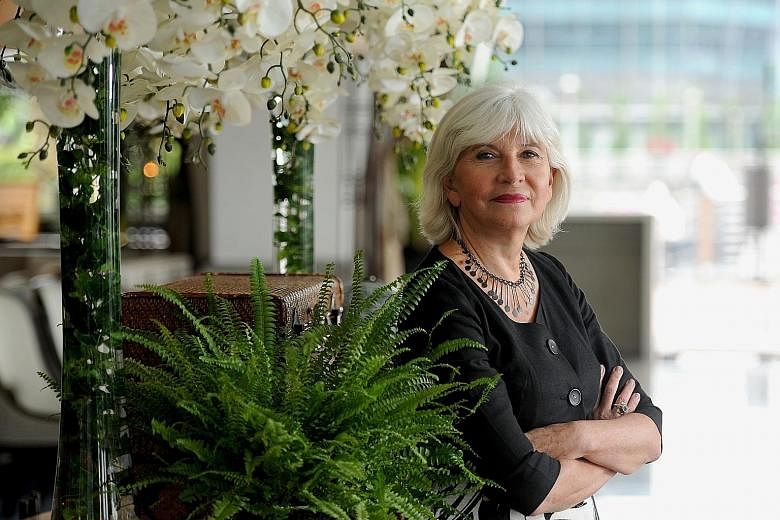Singapore, which played a key brokering role at the Paris climate talks, can also play an important role in discussions on putting the pact into action, France's climate envoy and United Nations climate champion has said.
Singapore is noted as a bridge- builder on many issues, Ms Laurence Tubiana, a key figure behind the success of the Paris climate agreement sealed last December, said yesterday. She was in Singapore as part of the Ministry of Foreign Affairs' Distinguished Visitors Programme and to attend the World Cities Summit.
Singapore played an outsized role before and during the Paris climate talks by facilitating discussions on areas of deep disagreement between nations.
The discussions have moved on to how to implement the agreement, which Ms Tubiana believes will go into force by 2018, two years earlier than planned. So far, 19 nations have ratified the pact, with China, the United States, India and Canada expected to follow suit this year.
Singapore could play a role in convening informal talks between stakeholders on areas that remain unresolved. "We need some kind of informal discussion to do that, because in a way we have less political pressure and it's a more technical discussion now. It's to have places where we could have these informal discussions outside Europe and the US," she told The Straits Times.
She said she understood Singapore's challenges in cutting carbon emissions blamed for heating up the planet and changing the weather, particularly its lack of space for large-scale renewable energy deployment.
"But I think they could do better," she added, referring to Singapore's 2030 emission goals. Singapore, which signed the Paris climate pact in April, has pledged to reduce emissions intensity by 36 per cent by 2030 from 2005 levels, and to stabilise emissions with the goal of peaking around 2030. Among other measures, the Government aims to improve energy efficiency by 1 to 2 per cent a year from 2020 to 2030 in the industry sector.
Ms Tubiana felt Singapore could opt for a hard cap on emissions. She said there was still scope for Singapore to opt for more ambitious targets, perhaps during the initial 2018-2023 phase of the Paris pact.
Under the agreement, nations commit to national climate actions that match their capacity and circumstances. These commitments are reviewed regularly and must be strengthened every five years.
"Now we have to prepare (for) 2018 and then 2023 to see how we improve that. So probably the discussion with Singapore, like with other countries, is to see what you can do better and prepare for 2018, to announce something better," she said.
The Paris pact was much more ambitious than had been anticipated and Ms Tubiana said she had feared some nations might have second thoughts. "My first concern in the months after Paris was, will there be any backsliding? And it hasn't happened."
She has seen strong willingness to put the plan into action, driven in part because nations now see the financial benefits of shifting to cleaner economies. More extreme and costly weather disasters, such as floods in China and the wildfires in Canada, were also a driver for action.
But she noted there are concerns about the impact of Britain's decision to leave the European Union on the EU's climate policy and targets. But Brexit would not derail the EU's entire climate policy. "Many elements could still continue with adjustment," she said.


